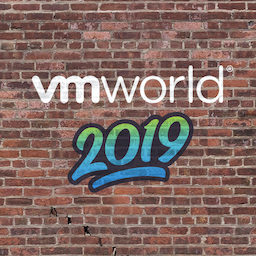Tag : VRealize Operations

Written by Christopher Lewis on November 1, 2019 .
What sessions should you see at VMworld 2019 - Cloud Management Edition!
VMworld 2019 vRealize Automation vRealize Operations vRealize Log Insight Wavefront CloudHealth

Written by Christopher Lewis on July 24, 2019 .
There have been a few Achievements / Goals Unlocked in the last few months. Let me walk you through them!
VMware VMware Cloud on AWS VMware EMpower vRealize Operations Cloud Management

Written by Christopher Lewis on July 19, 2019 .
The VMware vExpert Cloud Management 2019 announcement has been released, and I am truly humbled to be recognised for community contributions in the cloud management space.
Cloud Management vExpert vExpert Cloud Management vRealize Operations vROps
HOWTO: Monitor a Process in Linux using vRealize Operations - Endpoint Operation Management - Part 4

Written by Christopher Lewis on April 21, 2016 .
This is Part 4 of a series on Monitoring Processes in Linux using VMware vRealize Operations Endpoint Operations Management (EPOPS). In this post we will walk though how to identify the correct value for the process.query.
Endpoint Operations Management EPOPS Linux VMware vRealize Operations

Written by Christopher Lewis on April 21, 2016 .
In this post we will walkthrough how to install the Endpoint Operations Management (EPOPS) agent on a Linux (RPM) Operating System.
Endpoint Operations Management EPOPS Linux VMware vRealize Operations
HOWTO: Monitor a Process in Linux using vRealize Operations - Endpoint Operation Management - Part 3

Written by Christopher Lewis on April 20, 2016 .
This is Part 3 of a series on Monitoring Processes in Linux using VMware vRealize Operations Endpoint Operations Management. In this post we configure Object Relationships
Endpoint Operations Management EPOPS Linux VMware vRealize Operations
HOWTO: Monitor a Process in Linux using vRealize Operations - Endpoint Operation Management - Part 2

Written by Christopher Lewis on April 20, 2016 .
This is Part 2 of a series on Monitoring Processes in Linux using VMware vRealize Operations Endpoint Operations Management. In this post we look at how to create a MultiProcessor Object using Inventory Explorer
Endpoint Operations Management EPOPS Linux VMware vRealize Operations
HOWTO: Monitor a Process in Linux using vRealize Operations - Endpoint Operation Management - Part 1

Written by Christopher Lewis on April 20, 2016 .
This is Part 1 of a series on Monitoring Processes in Linux using VMware vRealize Operations Endpoint Operations Management.
Endpoint Operations Management EPOPS Linux VMware vRealize Operations
